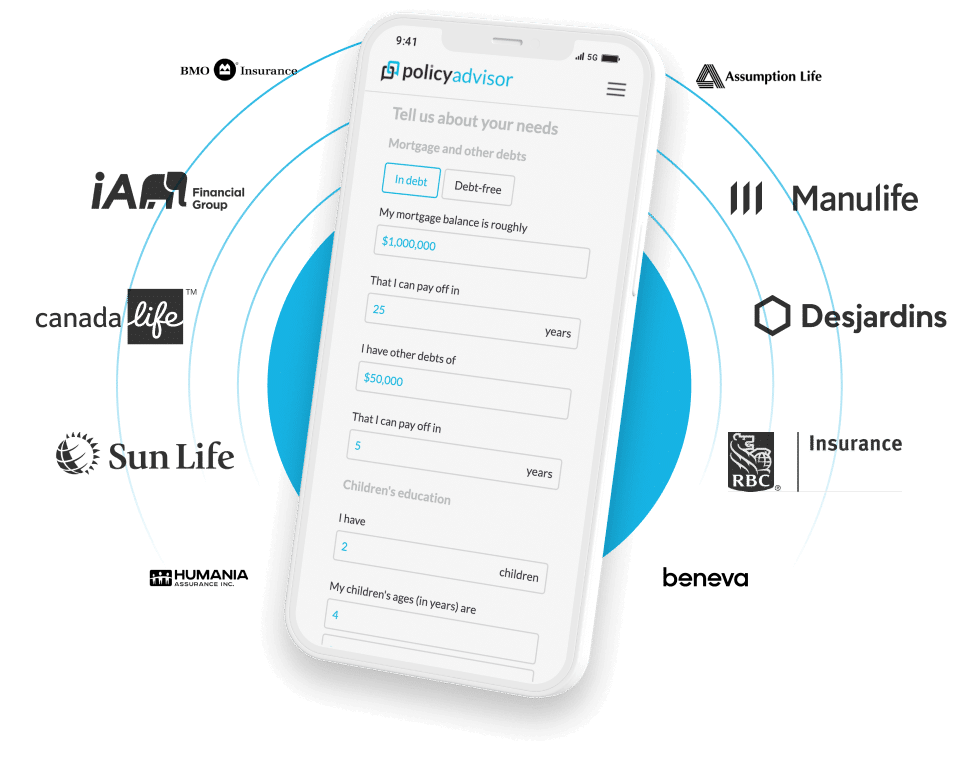
“Good credit? Bad credit? We have a deal for you!”
You’ve probably heard those lines in an over-excited radio ad or maybe a late-night TV commercial. Your credit score can have a big impact on your financial freedom, so it’s important to know where you stand. Whether you’re looking to finance your dream sectional, increase your credit limit, or even buy a house, your credit score matters.
But how, exactly, is a credit score calculated? And how can you boost your score to make sure you’re getting the best financial options possible? Read on to find out.
What is a credit score?
A credit score is a rating that represents how good you are at paying back your debts. It’s a three-digit number on a scale that tells companies how good you are with money. Credit scores range from 300 to 900. A higher score indicates better credit worthiness, meaning you’re more likely to pay back money you owe or your bills on time.
Lenders and banks use this information to assess the risk of lending money to you and to determine the interest rates and terms of the loan.
Other businesses look at your credit score to assess how likely it is that you’ll be able to keep up with bill payments. It will help them determine whether to ask you to pay a deposit or agree to certain terms before getting a service or opening an account.
Why credit scores are important
Your credit score is important because lenders and businesses look at it to decide if you can get a loan or service, or even rent an apartment. They use your credit file to assess whether it’s risky to do business with you. People who have a history of frequently missing payments may miss them again in the future. This makes potential lenders hesitate to lend their money out, and businesses hesitate to give you a service that needs regular bill payments.
Those who pay their bills on time and have a solid history of being on time will have good credit and a lender will be more inclined to approve the loan.
Those who have a history of missing payments or who have no credit history may have a harder time getting approved for a loan/payment plan. Or they may be given a higher interest rate than someone with good credit.
What does a credit score affect?
In general, your credit score affects what financial opportunities and services are available to you, such as:
- Approval for a mortgage or loan
- Interest rates for mortgages and loans
- Credit card limits
- Access to financing (like ‘buy now, pay later’ options or 0% financing)
- Rental application approval (apartments, condos, etc.)
- Access to premium bank products
- Eligibility for certain jobs
- Whether a utility company or service providers will make you pay a deposit to open your account
Your credit score can come up more often than you realize. It can determine if you can get a car loan, rent a nice apartment, or even sign up for internet service with a local service provider. It can be easy to forget about it, but it matters a lot in your life.
Where can I find my credit score?
You can obtain a free copy of your personal credit report from any major credit bureau once a year. If you notice any errors, you should dispute them immediately to prevent any negative impact on your credit score.
How is a credit score calculated?
Your credit account is calculated by using one of several credit scoring models that look at things like your payment history and what kinds of credit you have. Your credit score can vary depending on the type of credit score model that’s used.
What’s considered a good credit score can vary somewhat. But in general, according to Equifax, here is what the following credit score rankings mean:
🚫 300-579: Poor
➖ 580-669: Fair
✅ 670-739: Good
⭐ 740-799: Very good
💎 800-900: Excellent
What are the different credit scoring models in Canada?
Some of the most common credit scoring models used in Canada are:
1. Equifax & Trans Union
Equifax and Trans Union are the main credit bureaus in Canada. Each has its own proprietary credit scoring model. They calculate credit scores using the information found in their own credit reports. The specific algorithms used and scoring ranges can vary between these two.
2. FICO Score
Around 90% of Canadian lenders and credit unions use the FICO (Fair Isaac Corporation) Score. But, not a lot of people know about the FICO credit score because you can only access it through a bank.
3. Industry-specific scores
Some credit scoring models are designed for specific industries or types of credit. For example, there are auto loan scores, mortgage scores, and credit scores tailored for credit card companies. These models may take a closer look at key factors that are more relevant to the type of credit being extended.
4. Customized scoring models
Some lenders create their own scoring systems to assess your credit worthiness. These models are tailored to the lender’s needs and might look at more than what’s in a standard credit report.
What is a good credit score?
A good credit score is in the range of 670 – 739. A “very good” credit score range is between 740 – 799. If you’re aiming to have the best credit health, anything above 800 is considered an excellent credit score.
When people talk about having “good credit,” it means that the number on your credit report shows you’ve been good at paying your bills on time. This also means you likely have many financial chances and options to choose from.
What is a bad credit score?
A “bad” or “poor” credit score is any score in the 300 – 579 range. If you have poor credit, you’d be considered a risk to lenders and businesses. They may assume that you do not pay outstanding debts on time or at all, based on your history.
Because of this, they may not be willing to lend you money, give you low interest rates, let you rent or open a service account, or do business with you at all.
|
What affects my credit score?
Several factors can affect your credit score and make it increase or decrease over time. The most common factors are:
1. Payment history
This is the most important factor in calculating your score. It accounts for about 35% of your score and shows whether you have paid your bills on time. Late payments, defaults, or bankruptcies can significantly lower your credit score and send a red flag to companies and lenders who might do business with you.
For example, if you don’t pay a bill for so long that a company gets a collection agency to help them get the money you owe, that can have a big impact on your credit profile. When you hear people talk about an account or a bill “going to collections”, this is what they mean. This is why it’s so important to make all your payments on time to maintain a good credit score.
2. Credit history length
This makes up about 15% of your credit score. A longer credit history will help you have a higher credit score. It shows that you have a track record of managing credit responsibly. If you are just starting out, it may take some time to build a solid credit history.
3. Credit type
The types of credit you have used account for about 10% of your credit score. These can include:
- Credit cards
- Loans
- Lines of credit
- A mortgage
Having a different credit mix shows that you can handle different financial obligations. But be careful to make payments on time and not take on more credit than you can manage.
4. Credit utilization rate
This refers to how much debt you’re racking up. Your credit utilization rate is the ratio of your credit card balances to your credit limits. A general rule of thumb for having good credit is to keep your credit card balance under 30% of the credit limit. This can help improve your score over time.
5. Credit inquiries
A credit inquiry or credit check is when a company or lender checks your official credit report. Credit inquiries are important because they can have a temporary negative impact on your score. We talk more about this later on this article.
All of these factors contribute to your overall credit score. Each factor is weighted based on the type of credit scoring model being used (more on that below), and then the total score is calculated.
What is a credit check?
A credit check is when a third party (like a lender, company, etc.) looks at your credit file. It’s also often called a “credit hit”. If you are applying for a loan, an apartment, a job, or any kind of payment plan, they may do a credit check to see if you have good credit. They can either do what’s called a soft credit check or a hard credit check.
Soft credit hits
Soft credit checks are typically used for informational or pre-qualification purposes. They may be used to see if you’re eligible for payment plans for products or services that you potentially could pay for all at once, but choose to finance (couches, TVs, etc.).
They’re called soft credit checks because they do not impact your credit score, and are often performed without your explicit permission.
Hard credit hits
Hard credit inquiries are when a third party looks at your full credit report as part of a credit application process. This usually happens when you apply for a credit card, a loan, a mortgage, or other bigger installment loans. Lenders use hard inquiries to assess your credit risk before making a lending decision.
This kind of credit check is called a hard inquiry because it can hurt your credit score. Each hard inquiry typically reduces your credit score by a few points. However, the impact is usually temporary, and your score can recover over time.
But multiple hard inquiries within a short period may signal to lenders that you’re seeking a lot of credit and that you could pose a higher risk.
How to get a good credit score?
Building credit takes time, especially if you’re just starting out, but there are several things you can do to help get an excellent credit score:
✅ Make timely payments
✅ Keep your credit card balance low
✅ Keep your credit utilization ratio low
✅ Have a different credit mix
✅ Don’t apply for a lot of credit products at once
✅ Don’t let bills or debts go to collection agencies
✅ Regularly check your credit report
✅ Get professional help (such as a credit counsellor)
✅ Be patient
What can I do if I have bad credit?
If you have poor credit, there are steps you can take to improve your score:
➕ Create a budget to manage your spending
➕ Make on-time payments
➕ Work towards reducing your debt and increasing your available credit
➕ Contact the credit reporting agencies and dispute any inaccuracies in your report
➕ Look into credit repair services that can help you consolidate your debts at a lower interest rate
➕ Get professional help
A credit score is a big deal, and it sticks with you for the rest of your life. So, it pays to keep it healthy! With the right knowledge, good financial practices, and patience, you can get there!


 1-888-601-9980
1-888-601-9980

